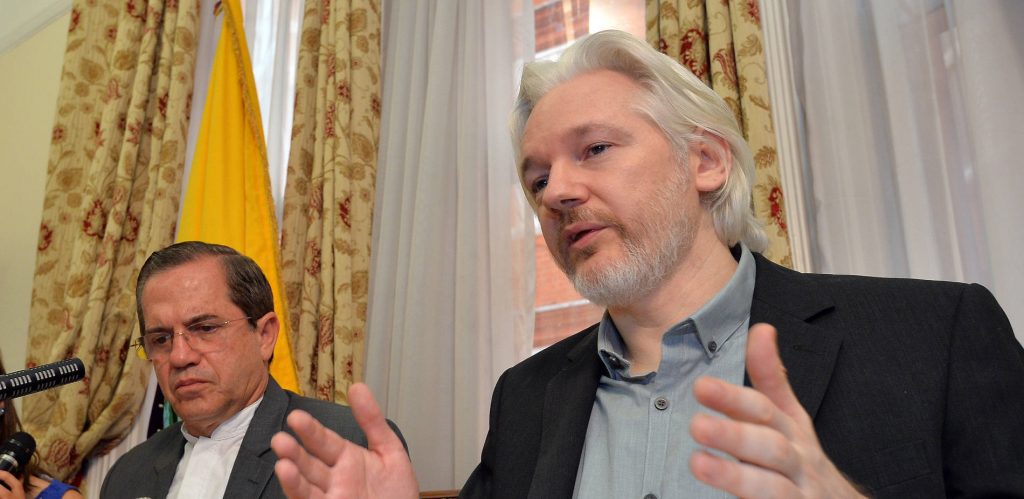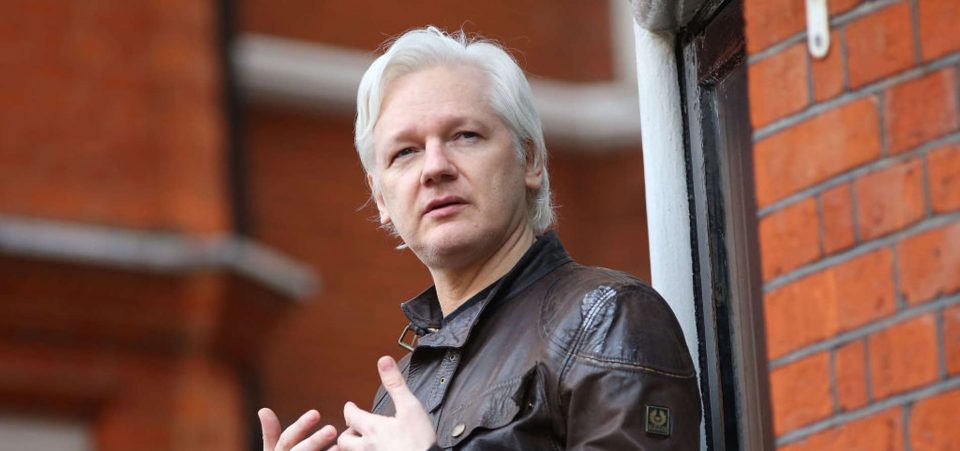Julian Assange Faces Multiple Investigations as U.S. Targets WikiLeaks
The 2016 presidential election campaign just won’t go away. The story may have started as something of a farce, but it seems bound to end in some version of a tragedy. Authorities in the United States are determined to blame Hillary Clinton’s electoral loss not on her considerable and significant mistakes, but on foreign interference and hacking.
The most sensational aspect is that the accusations of hacking are not cited in relation to the actual votes. Rather, the accusations concern hacking to reveal the e-mails containing compromising facts about Hillary Clinton. While the focus has been on Russia and its President Vladimir Putin, attention has shifted back to the master of leaking Internet secrets, the “patron saint”’ of international secret hacking: Julian Assange.
Assange founded WikiLeaks—a tool that started out revealing uncomfortable diplomatic secrets—in 2006, and the information it revealed has proven to be remarkably correct. (I vouch for this because yours truly has appeared in Wikileaks, and I can confirm that the details were correct.)
Now U.S. authorities are going after Wikileaks with a new investigation that the House and Senate Intelligence Committees on Judicial Affairs launched on December 7. As a reminder, the subject of all the hullabaloo over the past 13 months is that WikiLeaks allegedly hacked Democratic Party e-mails, as well as the personal e-mails of John Podesta, who was Hillary Clinton’s 2016 presidential election campaign chair. (Source: “WikiLeaks faces U.S. probes into its 2016 election role and CIA leaks: Sources,” Reuters, December 7, 2017.)

WPA Pool/Pool/Getty Images
Specifically, the authorities are probing Wikileaks’ role in the 2016 campaign. Meanwhile, in Alexandria, VA, not far from the National Mall in Washington Mall, prosecutors have already opened a criminal investigation into Wikileaks’ activities. Specifically, they are investigating how Wikileaks managed to secure hundreds of secret or confidential federal documents, including CIA memos that explain how the American spy agency does computer hacking of its own. (Source: Ibid.)
Weird Premise for Investigation
So far, the Russia investigation has moved along the following premise. Last January, barely weeks after the election, the various three-letter security agencies, including the CIA and the FBI, accused Russian intelligence of having hacked the accounts, which Russian military intelligence then delivered to Wikileaks. Meanwhile, the Senate and House investigations want to establish who supplied the 44,000 e-mails and 17,000 documents that Wikileaks published online in July 2016. (Source: Ibid.)
In their investigative effort, the House Intelligence Committee has questioned Roger Stone, Donald Trump’s friend. Stone was the one who tweeted about Wikileaks’ revelations. (Source: “Trump ally Roger Stone tweets — then deletes — he had “back channel” to WikiLeaks’ Assange,” Mic, last accessed March 5, 2017.)
In a series of tweets, Stone acknowledged having had a “perfectly legal back channel” to Wikileaks. Stone did not play that wisely. In February, it was revealed that he was already being investigated for contacts with “senior Russian intelligence officials”—not just Wikileaks—during the 2016 presidential election campaign. (Source: Ibid.)
But it gets weirder and more complicated. While there’s no clear proof of hacking, the Russia investigation appears to be making a mockery of itself by throwing around a mishmash of names. Investigators are weaving such a convoluted path as to fuel skepticism over the entire “Russiagate” narrative.
Supposedly, the a relatively obscure comedian Randy Credico has been associated with “Russiagate” because of his friendship with—and visits to—Julian Assange at the Ecuadorian embassy in London, where Assange has been hiding. Credico could plead both the first and fifth amendments in defense. These constitutional amendments respectively address freedom of expression and the freedom not to testify against oneself. (Source: “Why NY Comedian Randy Credico Has Been Linked to The Russia Probe,” Spectrum News, December 5, 2017.)
With investigations like these, linking the fate of a presidential election to a comedian, it seems that the “Russiagate” story could last the duration of Donald Trump’s first term, further ruining any credibility that the Democratic Party has left.






